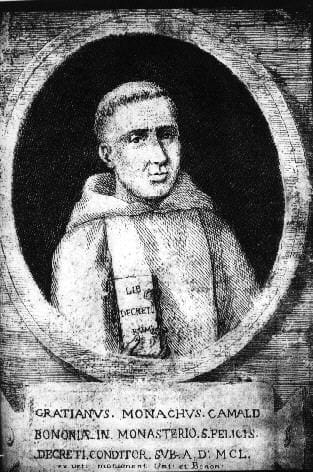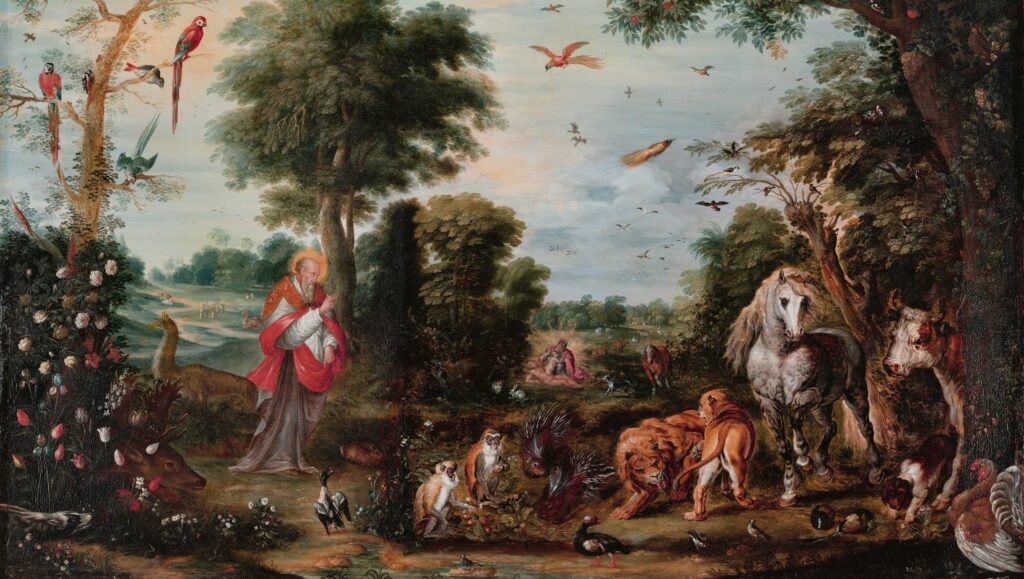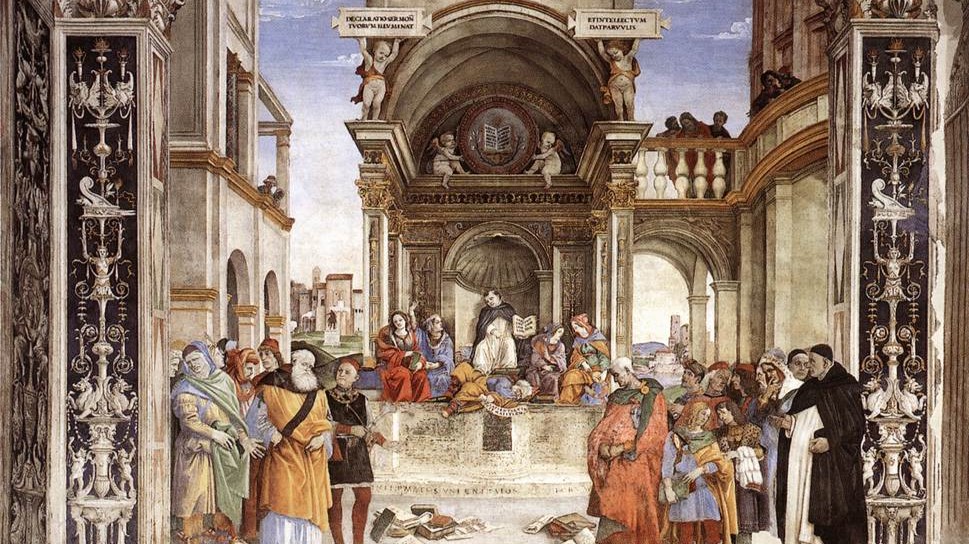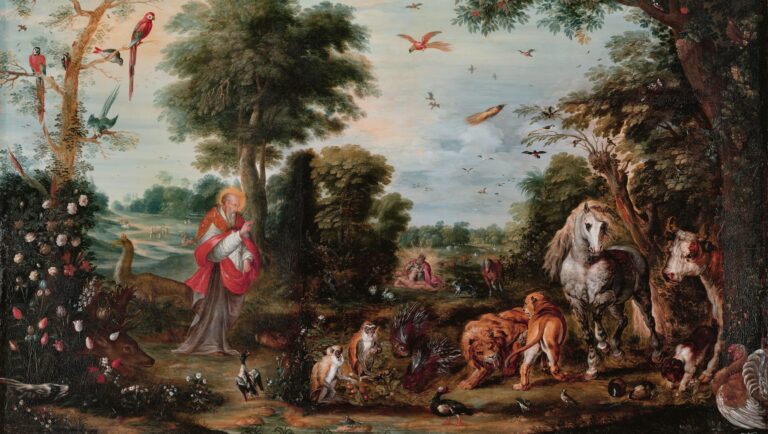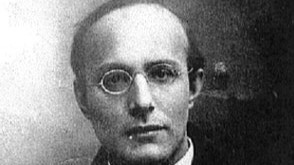Many today believe that natural rights were integrated into political life for the first time with the American Declaration of Independence and the French Declaration of the Rights of Man. While such written proclamations may have formally incorporated human rights as political rights, this central concept had already come into existence during the Middle Ages.
The medieval jus commune—the legal thought in Western Europe composed of a combination of canon law and Roman law after the rediscovery and reception of Justinian’s Digest in the 12th and 13th centuries—held that there existed a right order of government on earth founded upon natural law, which included the diffusion of human rights in society. However, the reason for the existence of those rights was not to justify human choices or to promote the sacredness of human life. Instead, it was to assert and promote God’s plan for the world.[1]
The reason for the existence of those rights was not to justify human choices or to promote the sacredness of human life
Nevertheless, a socio-political structure of interlocking rights simultaneously evolved, specifically one that dealt with the relationship between vassal and lord. Within this social order, many new communal associations, such as city communes and innumerable guilds of merchants and craftsmen, rose up claiming specific rights and liberties for their members.
The concept of natural law took on the notion of ‘a faculty or ability or power of individual persons, associated with reason and moral discernment, defining an area of liberty where the individual was free to act as he pleased [or as he ought to], leading onto specific claims [natural rights].’[2] The singular pioneer in this phase was the 12th century canonist Gratian (11th c. – 1159?).
Not much is known about Gratian’s personal life. Yet he is known as the “Father of Canon Law” as a result of his Concordia discordantium canonum, commonly referred to as the Decretum—a juridical collection of nearly 4,000 texts that sought to reconcile systematically contradictory statements of ecclesiastical law. It would be the point of departure for the integration of natural rights by the body politic into society.
Gratian’s Concept of the Natural Law and Natural Rights
In his Decretum, Gratian begins with the Tractatus de legibus, in which he says that the human race is ruled by two aspects, the law of nature, referred to as jus, and moral behaviour, which is referred to as mos. He notably makes a direct link of the jus and the mos to the tenets of divine Revelation. Consequently, each individual person is commanded to do to others what he wants done to himself and is prohibited from inflicting on others what he does not want done to himself—the Golden Rule: ‘So in everything, do to others what you would have them do to you, for this sums up the Law and the Prophets.’ (Matthew 7, 12)
Essentially, Gratian synthesised both Roman law and the theological traditions in such a manner that compelled future jurists to rely more on the Commandments than human law. In recognising what is morally correct, they would inevitably need to defend the person’s natural right to fulfil the divine tenets, such as the right to matrimonial consent between a man and a woman with the end of having and providing for their offspring—it can then be deducted that with this duty, children, too, possess natural rights.
In a famous passage from his Decretum (Distinctio IV, 3), Gratian stated that ‘[human] laws are established when they are promulgated, but they are valid when they are approved by the mos of those who use the [human] laws.’ With this comprehension, one can better understand that when Gratian discusses the natural law, he aligns it with man’s natural rights. This is because man himself is not a mere individual, i.e., a statistic in society, but rather a person who is endowed with reason to discern how to conduct himself in given situations. In that vein, canonists after Gratian ‘habitually considered how any rule of law or practice would affect “all souls.”’[3]
The natural right for Gratian was a reflection of the divine wisdom and will of the Triune God, which holds the same authoritative weight as human law as with Scripture
Natural law, or rather the natural right for Gratian was a reflection of the divine wisdom and will of the Triune God, which holds the same authoritative weight as human law as with Scripture. For him, the canons of the Church were always to be assessed in light of divine Revelation, but refuted if any contradictions were to be found. In like manner, the canons were equally to be interpreted in light of the same divine Revelation, and rejected if need be in light of their harmony or conflict with natural right. This is clearly manifested in his Distinctio, IX, 11:
‘Since, therefore, nothing is commanded by natural right except that which God wishes to be done, and nothing is forbidden except that which God forbids to be done, and finally since there is nothing in the canonical scriptures apart from what is found in divine laws; and the divine laws are consonant with nature; it is plain, that whatever can be shown to be contrary to the divine will or the canonical scriptures, the same is also found to be contrary to natural right. Hence, whatever is regarded as yielding to the divine will, or to canonical scripture, or to divine laws, natural right is also to be given precedence over it.’
Gratian’s exposition of natural law was to be understood that law was equitable and therefore man himself had to be dealt with in a just manner. His emphasis on equity meant that every person is to be taken as an individual human being in so far as he possesses an equal status as a child of God. ‘Instead of traditional social inequalities being deemed natural—and therefore not needing justification—an underlying moral equality was now deemed natural.’[4]
Gratian’s harmonious work became the watershed event when ‘canon law developed around a new theory of justice, a theory resting on the assumption of moral equality.’[5] In explaining the various possible senses of natural law, jurists came across a new reality that apparently their ancient texts did not communicate.
[1] Richard H. Helmholz, ‘Fundamental Human Rights in Medieval Law,’ Fulton Lectures, Chicago, University of Chicago Press, 2001, p. 3.
[2] Brian Tierney, The Idea of Natural Rights: Studies on Natural Rights, Natural Law and Church Law 1150-1625, Grand Rapids/Cambridge, Wm. B. Eerdmans Publishing Co., 1997, p. 54.
[3] Larry Siedentop, Inventing the Individual: The Origins of Western Liberalism, Cambridge, Belknap Press: An Imprint of Harvard University Press, 2014, p.218.
[4] Siedentop, p. 217.
[5] Siedentop, p. 216.

